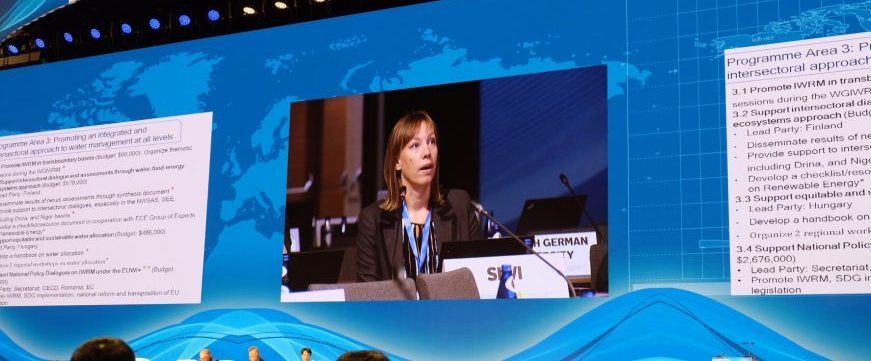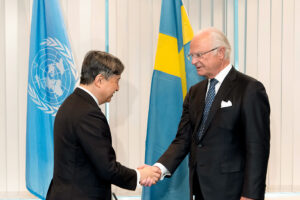- SIWI – Leading expert in water governance
- /
- Latest
- /
- Transboundary water cooperation is crucial to address source-to-sea priorities
Transboundary water cooperation is crucial to address source-to-sea priorities
S2S Platform and members advocate for transboundary water cooperation and source-to-sea approaches to realize goals of UNECE Water Convention. A supporting discussion was held in connection to the Eighth Session of the Meeting of the Parties of the Water Convention in Astana, Kazakhstan.

Transboundary cooperation too often ends at the mouth of the river, rather than extending to the coastal areas, seas and ocean that these rivers flow into. The seeds for integrating the source-to-sea approach in transboundary water cooperation already exist as part of the obligations stipulated in the two transboundary water conventions, but they are not comprehensive in its acknowledgement of source-to-sea linkages. The Convention on the Protection and Use of Transboundary Watercourses and International Lakes (UNECE Water Convention) entered into force in 1996 as a UNECE Convention, and agreed to open up to non-UNECE member states in 2003. The Convention on the Law of Non-navigational Uses of International Watercourses (UN Watercourses Convention) entered into force in 2014. Both transboundary river conventions aim to ensure the sustainable use of transboundary water resources by facilitating cooperation. The two conventions are mutually supportive and, in many aspects, complementary. Both conventions refer to the aim to protect the marine environment affected by transboundary waters/international watercourses.
“There is still a need to integrate the source-to-sea approach more explicitly among the activities under the UNECE Water Convention, and as part of transboundary cooperation at the basin level,” said Birgitta Liss Lymer, Director, Water Governance Department at SIWI, as part of her intervention on the draft Programme of Work of the Water Convention. Several countries also raised the importance of adopting a source-to-sea approach to transboundary cooperation as part of the regular sessions.
In connection to the Meeting of the Parties of the Water Convention, a side-event titled “An Impactful Relationship Fostering Source-to-Sea Management of Transboundary Basins” was arranged by GEF IW:LEARN and the S2S Platform. At the event, a panel discussed experiences for addressing source-to-sea priorities at the basin level. Chris Severin, GEF Secretariat, referred to the GEF-7 Programming Directions that states “Complex transboundary water ecosystems, cut across a myriad of sectoral needs and themes while not being bound by political boundaries. Consequently, setting effective policy goals, coupled with investments, requires working at all scales, with a range of stakeholders, in the public and private sectors and across the watershed from source-to-sea and beyond.” Panelists included members of Laos Ministry of Natural Resources and Environment, Global Water Partnership Mediterranean, Swedish Ministry of the Environment and Energy and the International Commission for the Protection of the Danube River.
Most recent

SIWI Reflections 2025: When Indigenous voices shape global water dialogue
- World Water Week
- Indigenous knowledge

SIWI Reflections 2025: When knowledge begins to travel
- Water diplomacy
- Water cooperation
- Water and Peace

SIWI Reflections 2025: When water-smart restoration builds change from the ground up
- Freshwater and ecosystems/biodiversity
- Water in landscapes
- Water governance

SIWI joins the winning consortium to lead EIT Water – Europe’s new innovation community tackling water challenges

Q&A with Dr Martina Klimes on the NEW Routledge Handbook of Water Diplomacy

Sweden and Japan Join Forces on Water and Climate at High-Level Tokyo Seminar


